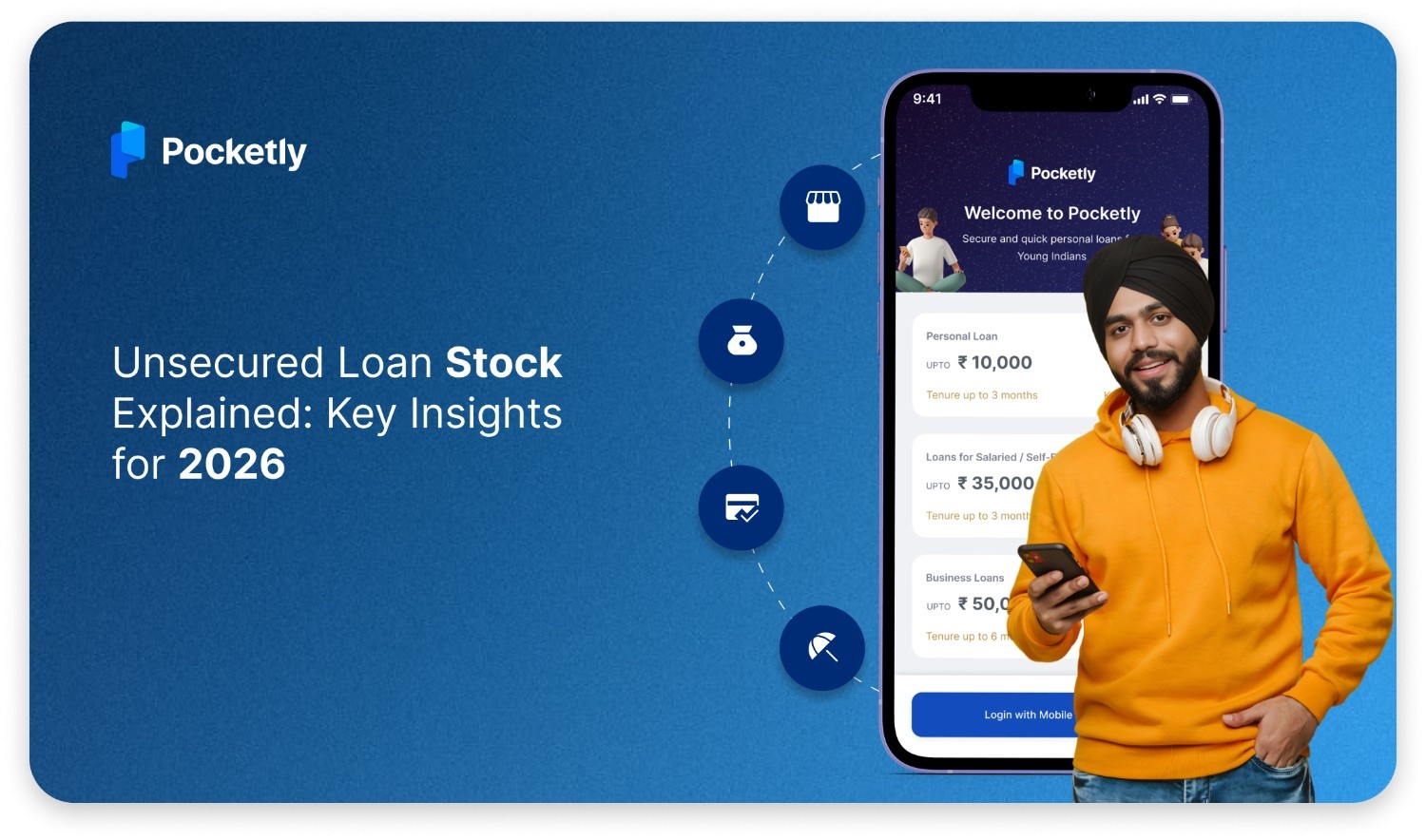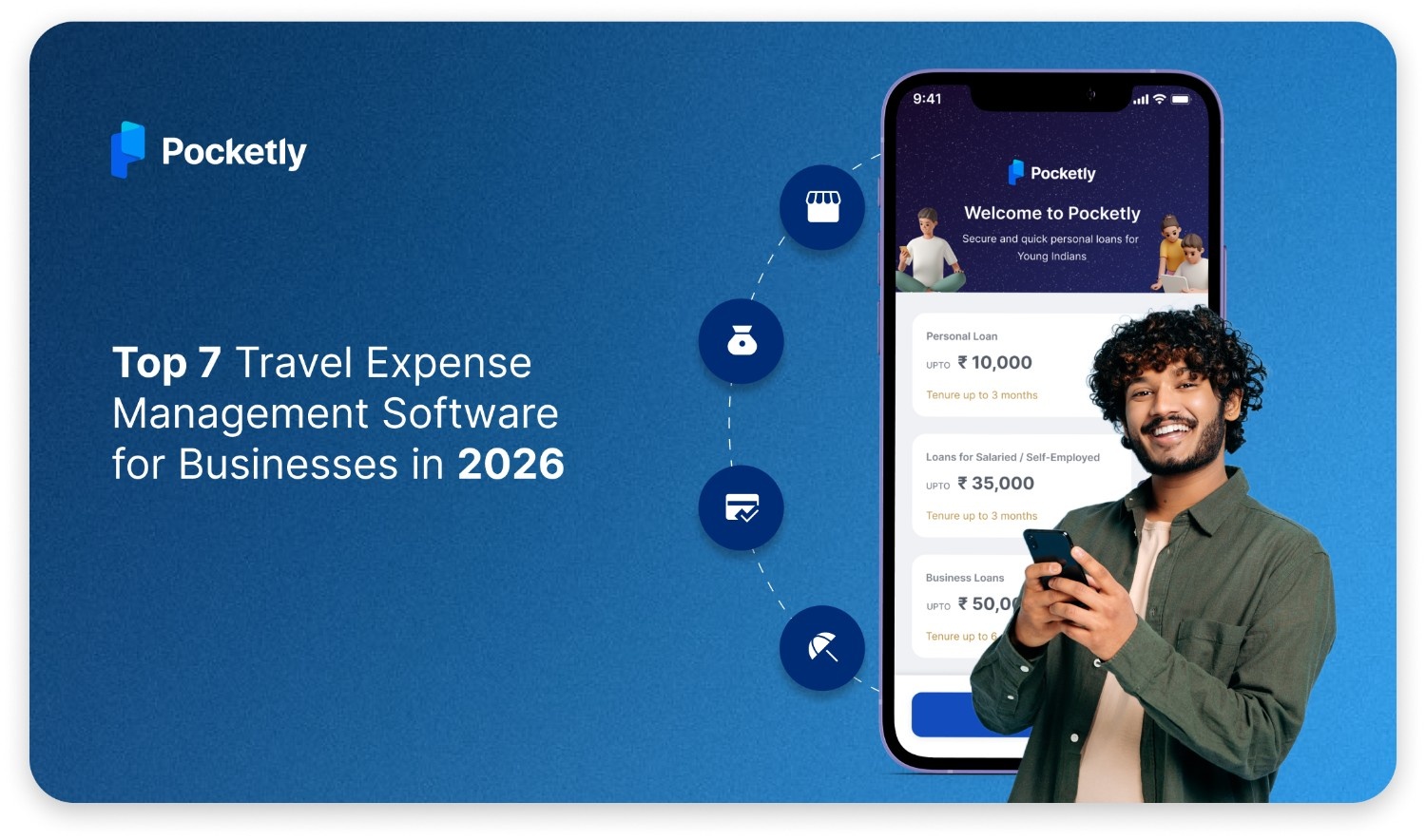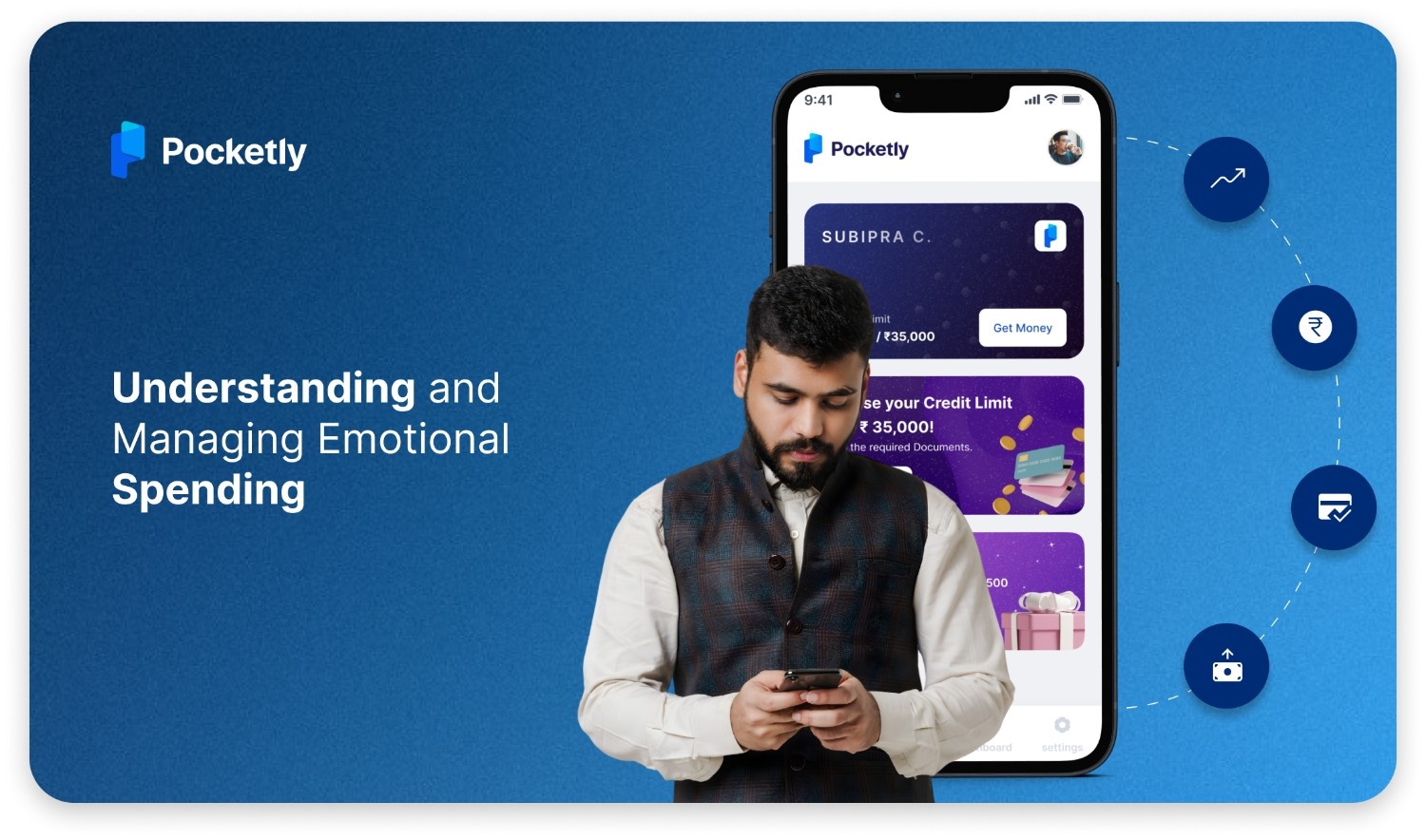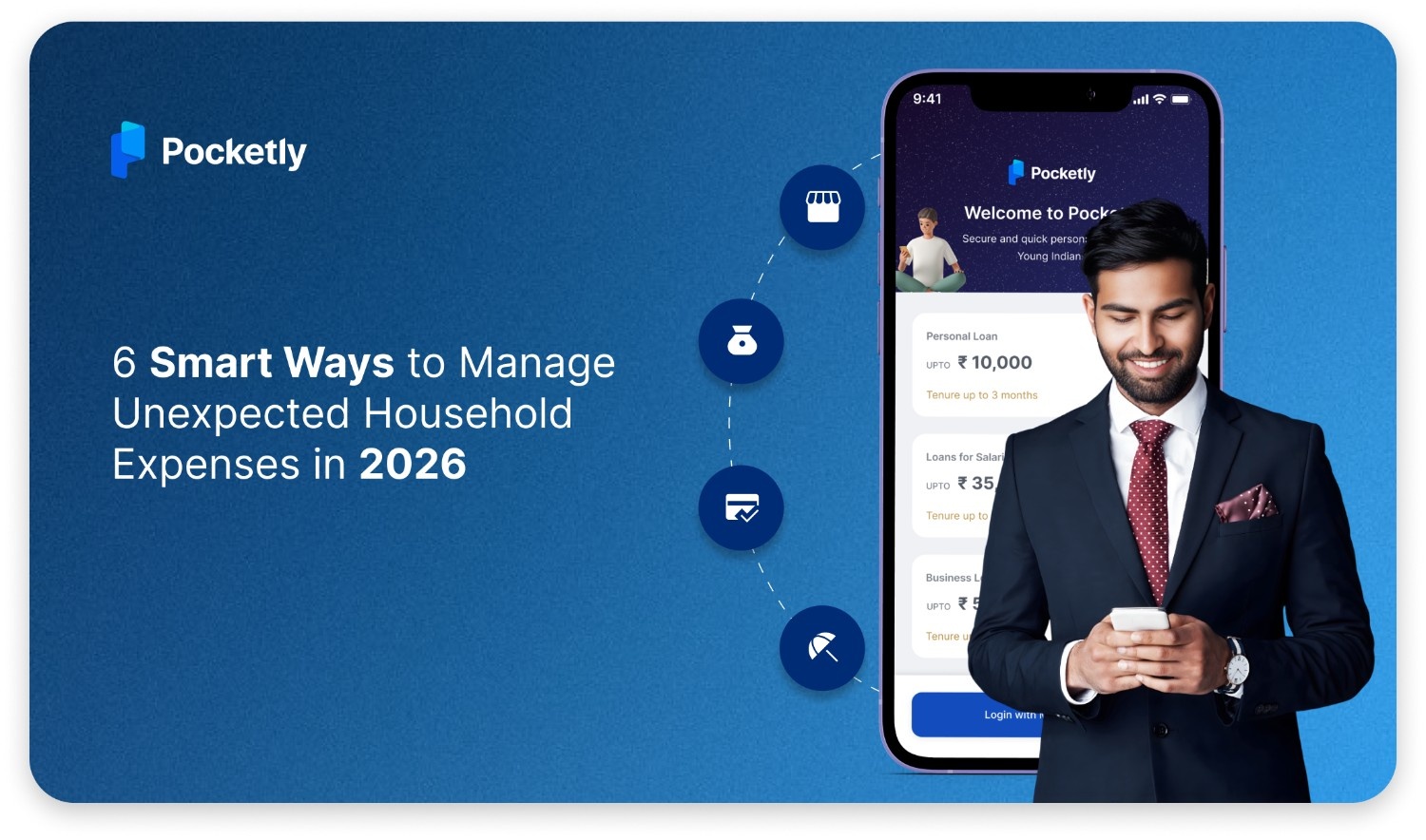Have you ever had to delay joining a course, fix something at home later than planned, or wait to buy tools for your small business because you didn’t have enough money? It happens to many of us. It’s tough when you know what you need but can’t afford it at the right time.
Surprisingly, only 27% of credit-eligible Indians use formal credit today. That means over 451 million people still struggle to get a loan or financial help when it matters most.
In this blog, we’ll talk about how credit can help in these everyday situations. It’s not just about borrowing money, it’s about getting timely support when you need it. Whether you’re a student, a homemaker, or running a small business, we’ll explain how credit makes life easier and helps you move forward.
We’ll also share simple, real-life examples to show you the vital and positive role of credit, so you can see how it can make a difference for you too.
Why Credit Matters in Daily Life?
Many people don’t realise how hard it is to get formal credit until they need it. If you’ve ever struggled to arrange money for an urgent need, like paying college fees, fixing your home, or covering medical bills, you’re part of a huge group dealing with the same challenge.
The truth is, access to credit matters more than most of us admit. It’s about borrowing, having a backup when life takes a turn, and grabbing opportunities when they show up. For students, homeowners, and small business owners, credit can quietly ease day-to-day problems and help them better manage future plans.
Here’s where credit actually makes a difference in everyday life:
- Housing improvements: If you’ve been waiting to buy a house or repair your current one, a home loan makes it possible to move ahead without waiting years to save up. It also helps create financial security for your family.
- Education and upskilling: Higher education, job training, or a specialised course can get expensive. Education loans ensure you don’t have to put off learning something valuable just because funds are tight right now.
- Managing big purchases: Some things can’t wait, whether a new fridge, a two-wheeler, or a laptop for work or studies. EMI options let you buy what’s necessary and pay it off in parts, so you don’t empty your savings at once.
- Handling medical emergencies: Health problems don’t come with a warning. Credit options can help cover medical expenses when your savings aren’t enough, so treatment isn’t delayed because of money.
- Running a small business: For those running a shop, freelancing, or running a home-based business, managing cash flow is always a balancing act. A personal loan or small credit line can help you handle quiet months, restock goods, or upgrade tools without putting your work on hold.
Example: Raj, a software engineer from Pune, took a ₹4 lakh loan to study AI. One year later, he landed a remote job with a European firm and tripled his income. His loan turned a skill into an opportunity.
Credit matters most to first-time borrowers in Tier 2 and Tier 3 cities. It helps them grow beyond the limits of their current income and brings financial freedom within reach.
Credit is a financial tool that helps people move forward faster. When used wisely, it improves lives without putting long-term goals at risk.
Understanding credit’s impact on personal lives sets the stage for seeing how it also drives business growth and job creation across the economy.
Also Read: Understanding Line of Credit: Definition, Types and How it Works
How Does Credit Play a Vital Role in Small Businesses?
If you're running a small shop, selling handmade products from home, or just starting something of your own, you know how tricky it gets when money is tight. Credit can help you manage daily needs, grab new opportunities, and even grow faster, without waiting for savings to pile up.
Here are some real situations where credit can make a difference:
1. Starting Out or Covering Gaps
When you’re just getting started or running a small setup, it’s common to face cash crunches. Many small entrepreneurs delay launching their business or lose out on orders because they don’t have the money to cover basic costs.
With a small loan or credit line, you can:
- Buy essential tools, raw materials, or stock needed to start your work
- Pay your staff or helpers on time, ensuring smooth daily operations
- Advertise your services online or locally to bring in more customers
- Set up a simple workspace or upgrade existing equipment without long waits
Why it matters: Without financial support, even a small delay can cost you customers and growth opportunities. Credit fills these gaps and helps you stay ready.
2. Preparing for Festivals and Big Sales
Certain times of the year bring more sales, festivals like Diwali, Eid, Christmas, wedding seasons, or school reopening months. During these periods, demand rises, and businesses need extra stock and staff.
A timely credit facility lets you:
- Stock up on in-demand products and trending items before the rush
- Handle larger orders without turning customers away
- Hire temporary staff or extra delivery help during busy days
- Decorate your shop or run special discounts and promotions to attract more buyers
Why it matters: Missing out on peak season sales means losing profits that could sustain your business for months. Credit helps you prepare better and earn more when demand is high.
3. Stocking Inventory in Advance
Running a shop or business means you always need to maintain enough stock of what your customers want. But bulk purchases often require more money upfront, and delaying can lead to stockouts, lost sales, and unhappy customers.
Using credit here allows you to:
- Order popular and fast-moving items in advance
- Grab bulk discounts from suppliers and increase your profit margins
- Introduce new products or seasonal items without waiting for savings
Why it matters: Well-stocked shelves and timely supplies not only bring repeat customers but also build your reputation as a reliable seller. Credit ensures you never miss out due to lack of funds.
4. Expanding or Hiring Help
Sometimes, even small improvements, like buying a faster machine or hiring an extra person, can grow your business faster. But these upgrades need immediate funds.
With credit support, you can:
- Buy better equipment or tools that improve your service speed and quality
- Hire and train extra staff to handle more customers
- Add new products or services to your business offering
Why it matters: Every small step in improving your setup or team directly affects your earning potential. Credit helps you invest in these improvements without emptying your pocket.
Real story: Shalini runs a boutique in Jaipur. Just before Navratri, she borrowed ₹2 lakh from a digital lender. She used it to buy new fabric and hire two tailors. Her collection sold out in 10 days. She repaid the loan in 3 months and kept one tailor on full-time. That one decision helped her earn more and grow her team.
Now imagine this happening in hundreds of small towns. That’s how credit helps people build stronger businesses and more local jobs.
What is the Positive and Vital Impact of Credit?
You’ve probably heard mixed opinions about credit. Some say it helps, others say it traps you in debt. The truth is, when used smartly, credit can become your financial safety net and even help you grow faster than you imagined.
Let’s look at how credit can create positive outcomes in your life:
1. Helps You Handle Urgent Needs Without Panic
Running out of cash when something important comes up is stressful. Maybe your phone breaks right before exams, or a family member needs urgent medical care.
Without access to credit, you’re forced to delay or ask others for help. But with the right loan, you can act quickly and sort out the problem without extra pressure.
Example: You need ₹5,000 for emergency dental treatment. You don’t have it saved, but a quick loan on a credit app helps you get treated the same day, and you pay it back over time.
Why it matters: You stay in control, handle emergencies fast, and avoid risking your health or dignity due to a cash crunch.
2. Makes Big Purchases More Affordable
Some things can’t wait, like a laptop for your college project or a fridge when the old one gives up. But paying all at once might be hard.
With credit, you can break large costs into smaller, manageable payments. That means you get what you need now and pay slowly, without draining your savings.
Example: You buy a ₹30,000 laptop through EMIs. You pay ₹3,000 monthly instead of spending your entire salary at once.
Why it matters: Credit lets you move forward without delay, and still have cash left for other essentials.
3. Builds Your Credit History
Every time you borrow and repay on time, you build a track record. This is called your credit history. Over time, it becomes proof that you can handle money well.
A strong credit history helps you borrow larger amounts later, such as for a car, education, or even a house.
Example: You take a ₹10,000 loan today and repay every EMI on time. A year later, you qualify for a ₹1.5 lakh loan at a better rate.
Why it matters: It unlocks bigger opportunities for the future and helps you plan long-term goals with confidence.
4. Improves Your Credit Score
Think of your credit score as a mark out of 900. The higher it is, the better your chances of getting approved for loans at lower interest rates.
Using credit responsibly boosts your score. That means lower EMIs, faster approvals, and more loan offers.
Example: You used a short-term loan from a digital app and repaid it in two months. Your credit score rose by 50 points, making you eligible for a better offer next time.
Why it matters: A good score gives you the freedom to choose the right lender and avoid high-cost borrowing.
5. Gives You Financial Confidence
Knowing you can access funds anytime gives you peace of mind. You don’t have to worry about sudden expenses, salary delays, or short-term cash gaps.
Instead of panicking or borrowing from risky sources, you can rely on trusted platforms like Pocketly for safe and quick loans.
Example: Your salary is delayed this month, but rent is due. You get a small loan via the app, pay your rent on time, and repay once your salary arrives.
Why it matters: Credit helps you stay independent, confident, and in control of your money.
Now, while these are all real benefits, credit can become a problem if misused. It’s just as important to know the risks.
What Happens When Credit Is Misused?
When you borrow more than you can repay or use informal sources, credit quickly turns into a burden. Let’s look at what you need to watch out for.
1. Risk of Falling Into a Debt Trap
Borrowing from multiple sources or missing EMIs adds up quickly. You may end up taking a loan just to repay another one, and that cycle can be hard to break.
Why it happens: No budget, late repayments, or borrowing beyond your income.
Real pain point: You took three short-term loans and missed one EMI. Now, your monthly outgo is too high, and new loans come with higher interest.
How to avoid it: Always borrow only what you need. Use formal apps like Pocketly that show total costs clearly.
2. Damaged Credit Score
Missing repayments or defaulting on loans pulls your score down. That affects your chances of getting loans when you really need them, like for education or emergencies.
Why it happens: Late payments, skipping EMIs, or not tracking due dates.
Real pain point: You missed one EMI while travelling. Now, your credit score dropped and your next loan was rejected.
How to avoid it: Set reminders, automate repayments, and avoid last-minute borrowing.
3. Hidden Charges in Informal Lending
Local lenders may not explain interest clearly. What looks like a small amount today might triple in two months.
Why it happens: No paperwork, unclear terms, and emotional pressure to repay quickly.
Real pain point: You borrow ₹5,000 and end up paying ₹8,000 in two months. You weren’t told the real cost upfront.
How to avoid it: Stick to formal credit platforms like Pocketly, which are RBI-regulated and show all costs upfront.
Credit is not your enemy. It can be a powerful tool. Use it wisely, and it can help you grow, plan better, and live with less stress.
Platforms like Pocketly make it easy for you to get safe, regulated, and transparent loans. So you’re not stuck asking for help, or worse, borrowing from shady sources.
Want to take control of your finances? Start by building a healthy credit journey today.
How Credit Helps Build a Stronger India?
Credit isn’t just about big projects or faraway plans. It’s also about helping people like you and your community grow and thrive. When you use credit wisely, you’re part of a bigger story, one where roads get built, farms improve, and businesses create jobs.
Here’s how credit supports progress that affects your life and those around you:
Better Roads and Services
The government uses credit to build highways, metro rails, and power grids. These projects make travel easier, create jobs, and help local businesses grow. When infrastructure improves, it’s easier for you to get to work or deliver products.
Growing Businesses and Factories
Medium and large businesses borrow money to buy machines and expand. This means more jobs in your city or town. When local industries grow, you get more chances to find work or start your own venture.
Helping Farmers and Rural Families
Credit schemes help farmers buy seeds, fertilisers, and irrigation tools. This means better crops and steadier incomes for rural families. When farmers succeed, local markets get stronger, and food becomes more affordable.
Real Story: A group of farmers borrowed formal credit to install drip irrigation on their land. They saved 40% water and grew 35% more crops in one season. Because of this, they repaid their loans early and reinvested in better seeds. This kind of success helps their entire community.
When credit reaches the right hands, it turns into jobs, homes, and better futures for many people. The key is using formal credit sources that offer fair terms and protect you so that you can grow safely and steadily.
While credit can drive progress at every level, the source of that credit, formal or informal, often determines how secure and sustainable the impact truly is.
Also Read: Personal Loan EMI vs Credit Card EMI: The Differences Explained
Choosing Between Formal and Informal Credit: What You Need to Know?
When you need money fast, how you borrow can make a big difference. Credit can help you pay bills, grow your business, or plan for the future. But borrowing informally or formally affects your financial health in very different ways.
Here’s what you should keep in mind:
What Is Informal Credit?
Informal credit means borrowing from people around you, like local moneylenders, friends, or shopkeepers. It’s often quick and easy to get. But it can come with hidden dangers, such as:
- High interest rates, sometimes 8 to 10% every month.
- No written agreements so that terms can change suddenly.
- Pressure to repay fast, even if you are struggling.
If you rely on informal credit without enough financial knowledge, you might end up in a debt cycle.
What About Formal Credit?
Formal credit comes from banks, cooperatives, government schemes like MUDRA, or trusted digital lenders regulated by the RBI. It might take a bit longer to apply, but the benefits include:
- Lower and fixed interest rates, usually calculated annually.
- Clear repayment plans with legal protections.
- Building a credit history, which helps you borrow larger amounts in the future.
Real-Life Example
Think about a flower vendor in Nagpur who borrowed ₹20,000 from a moneylender, charging 8% monthly interest. When business slowed, she missed payments and had to mortgage her scooter. On the other hand, another vendor took a ₹15,000 MUDRA loan at 12% annual interest and paid it back comfortably over a year.
Why Choose Formal Credit?
Using formal credit, especially through easy-to-use mobile apps or UPI-linked accounts, can protect you from high-interest traps. It also opens doors to financial stability and growth.
If you’re thinking of borrowing, seek formal credit sources like Pocketly that will keep your finances safe and help you build a better future.
Pocketly Makes Formal Credit Easy for You
Are you struggling to pay your tuition? Do you need a quick loan to cover rent or buy stock for your business? Pocketly offers a simple, safe way to get formal credit straight from your phone.
You can borrow between ₹1,000 and ₹25,000, based on your needs. Whether you’re a student managing monthly expenses or a small entrepreneur looking to restock, Pocketly helps you access funds without the stress of borrowing from informal sources.
Why Choose Pocketly?
Here’s what makes Pocketly a better choice for short-term loans:
- Instant Loans on Your Phone: Apply anytime and get money in your account within minutes.
- Fair Interest Rates: Loans start at 2% per month, with repayment periods of up to 3 months depending on the loan amount.
- Minimal Documentation: All you need is your PAN, Aadhaar, and a bank account linked to UPI.
- Low Processing Fee: Pocketly charges a 1–8% one-time processing fee, clearly shown before disbursal, with no hidden costs.
- Build Your Credit Score: Every repayment helps you create a positive credit history, which will allow you to borrow higher amounts in the future.
Real Help, When You Need It
Thousands of Pocketly users have taken control of their money, without falling into a debt trap. A college student covered her exam fees in time. A local shop owner bought fresh stock during a seasonal rush. A working professional managed an emergency medical bill between paychecks.
If you’re looking for quick, honest, and secure credit, Pocketly is your go-to app.
Also Read: Top Instant and Safe Personal Loan Apps in India
Conclusion: Make Credit Work for You
If you're a student, a young professional, or someone running a small business, Pocketly can help you manage urgent expenses without falling into a debt trap. You stay in control and build your credit history along the way.
Informal loans may seem quick and easy, but they often come with high interest and no safety net. One missed payment can lead to pressure, penalties, or even the loss of something valuable. That’s why it’s important to pick credit options that offer security and clarity.
With formal credit, you know exactly what you're signing up for. You get fair interest rates, fixed repayment plans, and legal protection. Apps like Pocketly make this even simpler by giving you access to small loans, starting from ₹1,000 and going up to ₹25,000. Interest rates start from just 2% per month, and you only need minimal documents to apply.
Ready to take charge of your finances? Download the Pocketly App on your phone (Android, iPhone) and get formal credit that’s safe, simple, and built around your needs.
FAQs
Q. What are the main risks of relying on informal credit sources?
A. Informal credit often comes with very high interest rates and lacks legal protection, which can lead to debt cycles and financial instability.
Q. How can building a credit history help individuals in the long run?
A. A good credit history improves access to larger loans, better interest rates, and other financial products like insurance or rentals.
Q. What steps can first-time borrowers take to avoid common credit pitfalls?
A. They should prioritise formal credit sources, understand repayment terms clearly, and avoid borrowing beyond their repayment capacity.
Q. How does credit access contribute to economic growth at the national level?
A. Credit funds infrastructure, industry, and agriculture projects, creating jobs, improving productivity, and raising incomes across sectors.
Q. Why is financial literacy important when using credit?
A. Understanding credit terms and risks helps borrowers make informed decisions, avoid debt traps, and build sustainable financial health.











